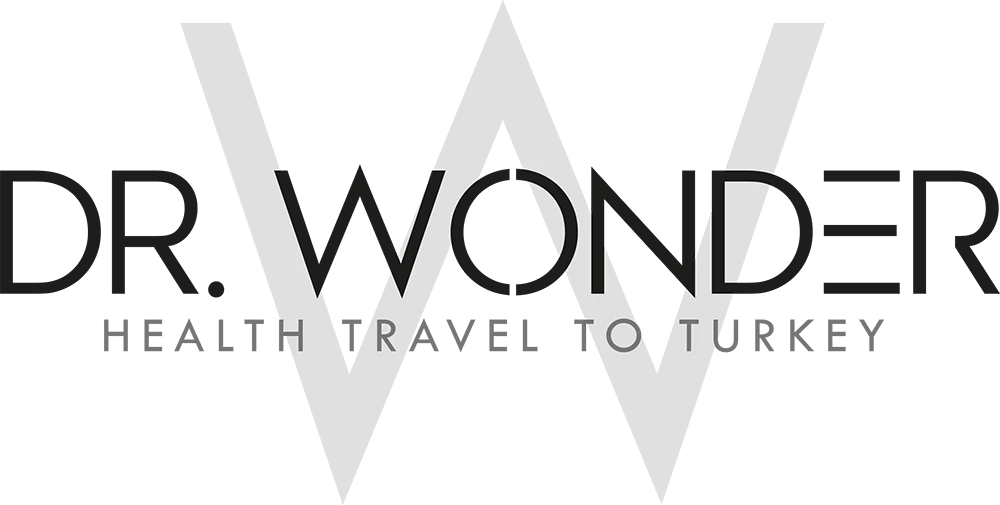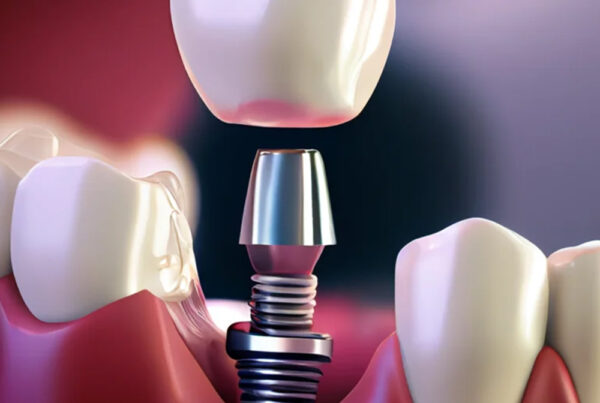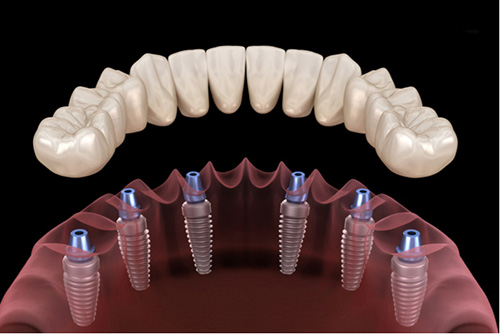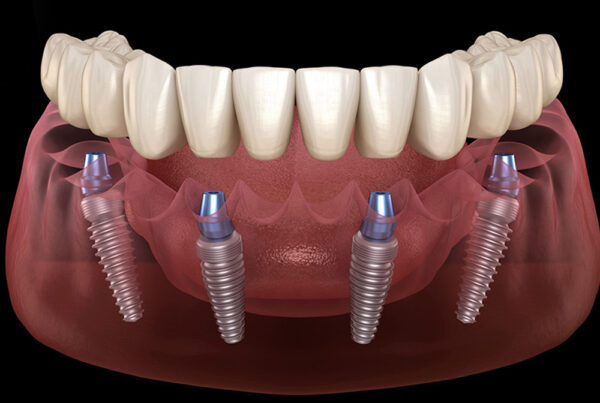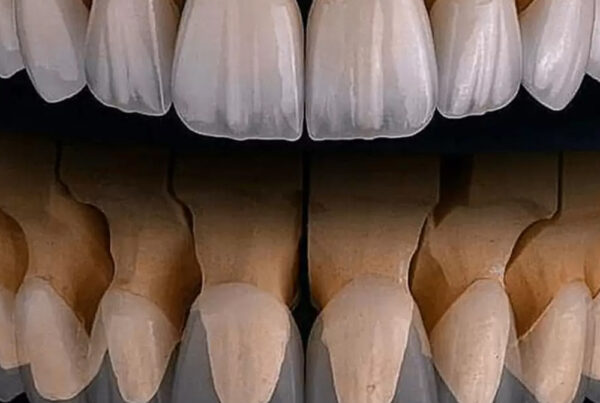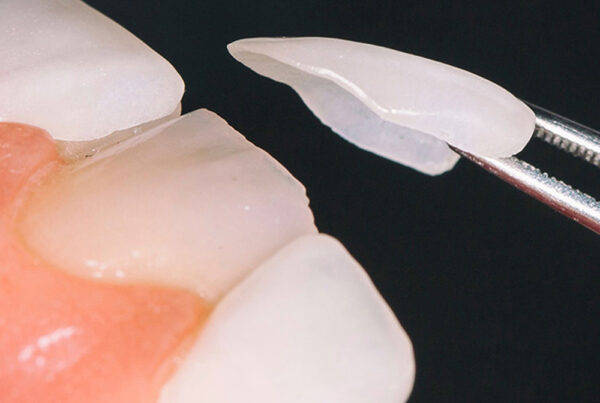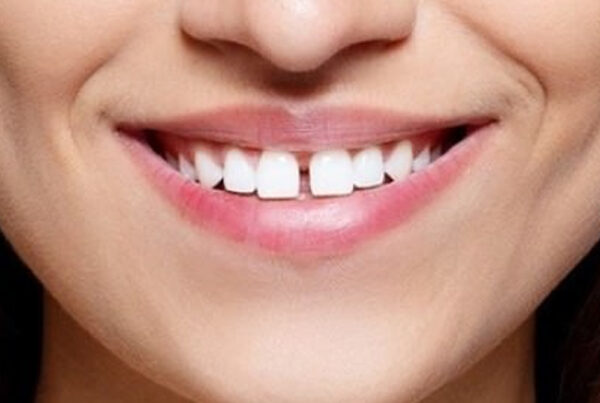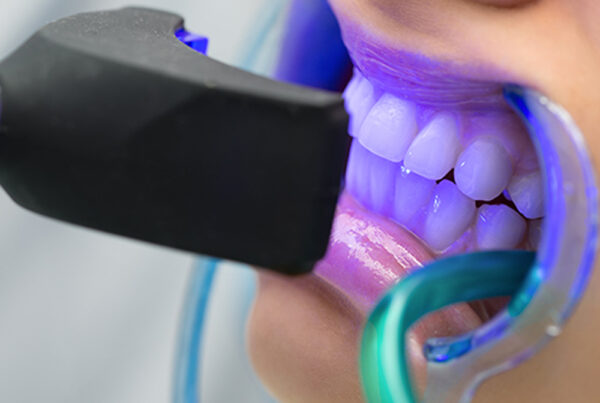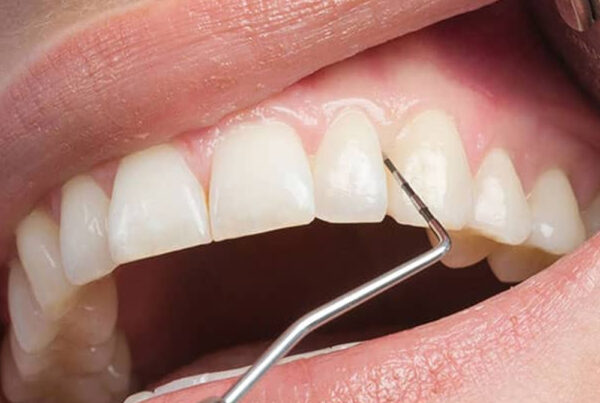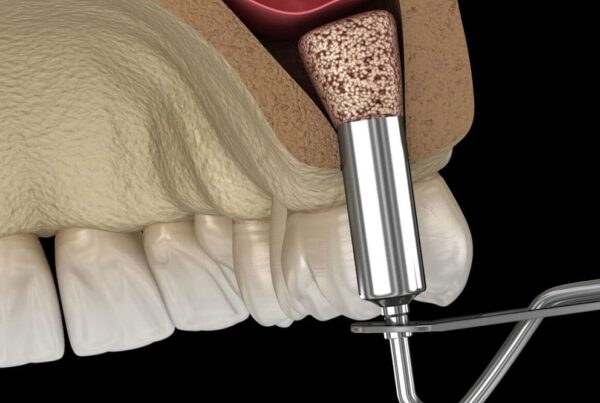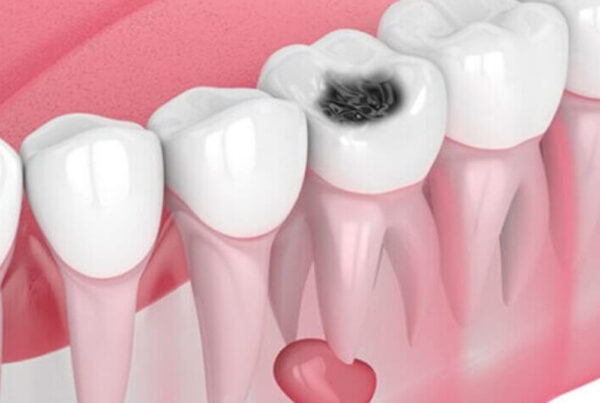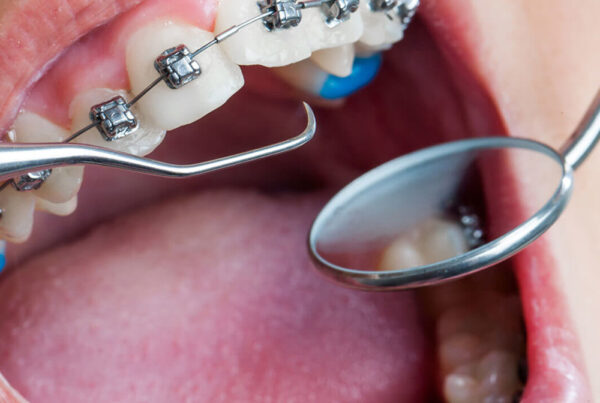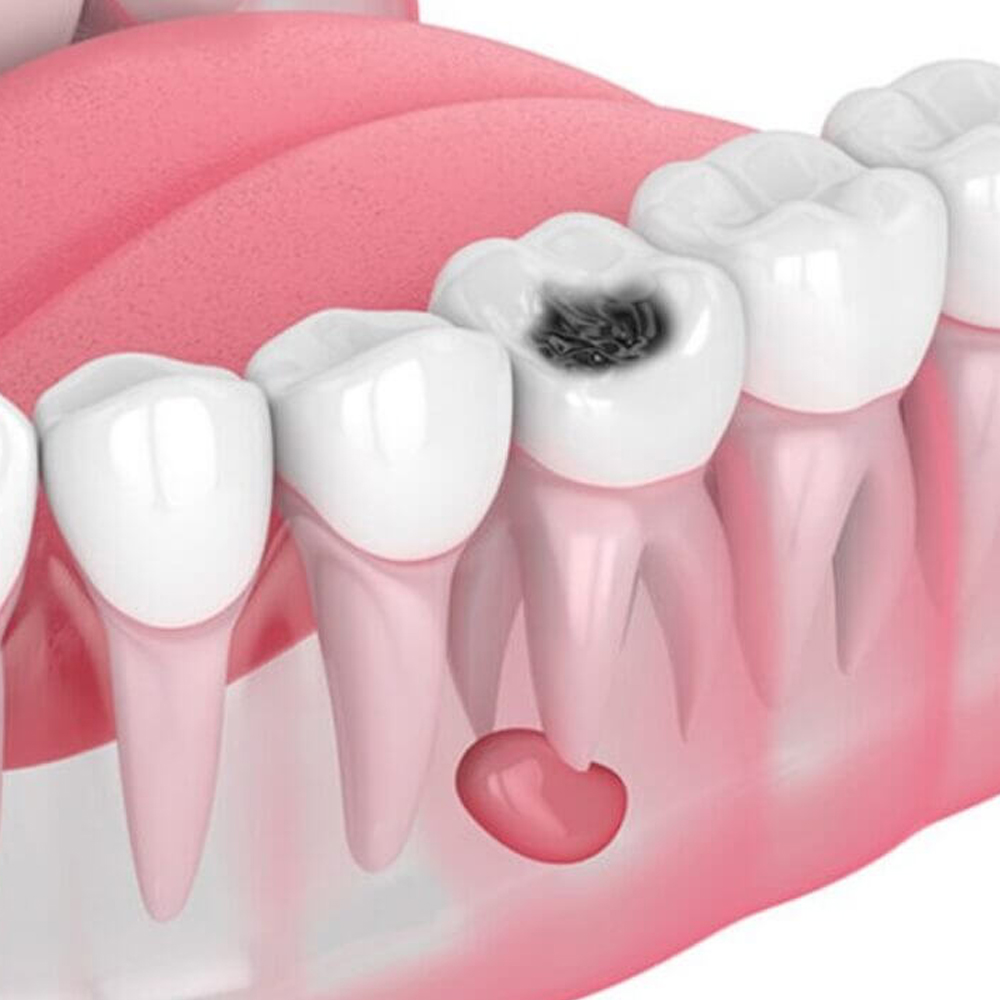
A cyst is a pathological cavity surrounded by a wall that grows from the center to the periphery.
Formation and damage of cysts;
Other Treatments
They can also occur as a result of the residual lesion in the jawbone after the extraction of teeth with a cystic lesion at the root tip.
– Cystic lesions caused by an impacted tooth have been observed.
– Cystic lesions cause bone destruction, spontaneous fractures in the jawbone and displacement or damage to surrounding teeth. To prevent bone destruction, the tooth must be extracted and the cyst removed.
– Rarely, if the cyst spreads to very large areas, it can turn into tumors and cause spontaneous fractures in the jawbone.
Cyst Surgeries
The basic principle in cyst surgeries is to remove the entire cyst together with its wall. Neighboring tooth roots that are not associated with the cyst lesion should be preserved and the teeth in the cyst should be kept in the mouth by apical resection.
In some types of cysts, a resistor is placed in the cyst in order to ensure the eruption of the impacted teeth that are pushed by the pressure created by the cyst itself. This resistor is changed every week to reduce the pressure inside the cyst, to allow new bone formation around the cyst and the eruption of the impacted teeth.
Cyst treatment should not cause functional or aesthetic problems. For this reason, reconstruction of large cyst cavities with appropriate bone grafts (bone powder) and membranes (barrier) is necessary.
Why does a tooth cyst occur?
Cyst formation in the jawbone or tooth root can have different causes. Cysts can occur due to bacteria formation as a result of incorrect dental operations and inadequate oral hygiene. Caries that are not treated in time can also cause you to encounter dental cysts.
How to Detect a Tooth Cyst?
A cyst in the jawbone and tooth cannot be easily detected unless it causes pain and swelling. At this point, people who do not interrupt dentist checks and visit the dentist for examination every 6 months are more fortunate. Cyst formation is easily detected with the help of detailed examinations, X-rays and other imaging techniques.
Advanced cyst problems cause symptoms such as pain, facial numbness, and hypersensitivity. At the same time, loosening of the teeth may also occur.
What happens if the tooth cyst is not treated with cyst operations?
If the necessary steps forcyst treatment in the tooth are not taken on time, you may encounter serious problems such as fracture of the jawbone. Cysts can seriously disrupt the jaw structure by causing bone resorption. Therefore, you may have difficulty opening your mouth and may experience convulsions.
Can a tooth cyst be treated with medication?
It is not possible to treat atooth cystwith antibiotics and different medications. Root canal treatment or a surgical operation should be performed to completely remove the cyst from the area where it is located.
How is a tooth cyst treated?
If the cyst is in the root of the tooth, tooth extraction is performed. Curettage treatment can also be applied in the tooth extraction area to completely remove the cyst. If the cyst is in the jaw, it is removed surgically. Different surgical techniques are used to remove jaw cysts depending on the size of the cysts.
Enucleation Method in Cyst Operations
The method in which the jaw cyst is removed in one piece is called enucleation. During this procedure, which can be performed under local and general anesthesia, the area where the cyst is removed is closed with the help of stitches.
Marsupialization Method
Injaw cyst treatment, the larger the size of the cyst, the more difficult it is to remove. If it is not possible to remove the cyst in one piece, the marsupialization method is used. In this method, the cyst is first reduced in size and then removed from the area where it is located. The fluid in the cyst is drained to ensure shrinkage. This procedure can also be performed with a drain if the size of the cyst is too large.
Canal Treatment
In caseof cyst formation in the tooth, it may be possible to stop the progression of the cyst and prevent tooth loss with root canal treatment. During root canal treatment, the procedure is performed through a hole drilled towards the root of the tooth. During the procedure, infections caused by the cyst and all harmful formations are removed. The canal treated tooth is restored to a stronger structure with a filling. Ifthe tooth with cyst is treated withroot canal treatment, the tooth does not need to be extracted.
Does Tooth Cyst Recur?
Tooth and jaw cysts usually do not recur after a successful operation. Just in case, it is important that you do not interrupt your regular dental check-ups to avoid such a problem again. At the same time, you can eliminate some factors that can lead to cyst formation by paying utmost attention to oral hygiene.
